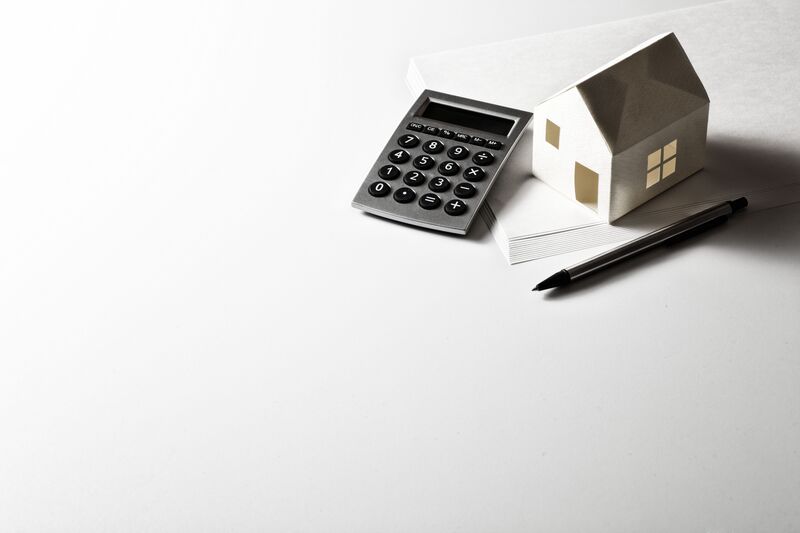What You Need to Know About Storing Your Freezer Safely
Storing your freezer safely is essential for prolonging appliance lifespan, ensuring energy efficiency, and protecting the food you keep inside. Whether you have an upright freezer, chest model, or a combination fridge-freezer, following proper storage and maintenance guidelines can save you money, prevent spoilage, and keep your household running smoothly. In this comprehensive guide, we'll explore the most important tips, tricks, and considerations for safely storing your freezer and its contents.
Why Freezer Storage Safety Matters
Understanding freezer storage safety isn't just about protecting your food from spoilage--it's also about preventing hazards like electrical issues, mold growth, and wasted energy. Below, we discuss the reasons why storing your freezer properly is critical for any home or business.
- Preservation of Food Quality: Proper freezer storage ensures that food remains safe to eat, retaining its taste, texture, and nutritional value.
- Extended Appliance Lifespan: Correct storage conditions prevent unnecessary wear and tear, helping your freezer last longer.
- Energy Efficiency: Storing your freezer in the right place and keeping it organized can significantly cut down on power usage.
- Prevention of Health Hazards: Avoiding issues like mold or pest infestation by storing your freezer safely helps keep your household healthy.
- Ease of Access: A strategically placed and organized freezer makes meal prep and inventory management much more efficient.

Choosing the Right Location for Your Freezer
Where you choose to store your freezer is as important as how you use it. Placing your freezer in the wrong environment can compromise its performance, efficiency, and longevity.
Ideal Temperature and Ventilation
- Ambient Temperature: Freezers work best in spaces where temperatures remain between 50?F (10?C) and 85?F (29?C). Extreme cold or heat makes the compressor work overtime, leading to higher utility bills and potential damage.
- Ventilated Areas: Ensure there's sufficient space around the unit--generally, at least 2-4 inches of clearance on all sides for airflow. This reduces the risk of overheating.
- Avoid Direct Sunlight: Store your freezer away from windows and heat sources such as ovens, radiators, and dryers.
- Flooring: Position the freezer on a level, non-carpeted surface to promote proper air circulation and to prevent moisture buildup beneath the appliance.
Indoor vs. Outdoor Storage
Many people wonder if storing a freezer in the garage, basement, or outdoors is advisable. Here's what you need to know about freezer storage in unconventional spaces:
- Garage Installation: Only place your freezer in the garage if the ambient temperatures stay within operational range. For very cold (below 32?F/0?C) or very hot climates, consider a freezer designed for "garage ready" conditions.
- Basement Storage: Basements typically offer a cooler, temperature-stable environment, but ensure it's dry and free from excessive humidity to prevent rust and electrical issues.
- Outdoor Storage: Outdoor placement is generally discouraged unless the freezer is specifically designed for outdoor usage, with proper weatherproof insulation and protection from rain, snow, and animals.
How to Safely Store Food in Your Freezer
Safe freezer storage isn't just about where you put the appliance--it's about how you organize and package food as well. Follow these best practices to keep your frozen groceries at their best.
Packaging Food Properly
- Use Airtight Containers: Store items in freezer-safe bags or rigid containers with tight-sealing lids to prevent freezer burn and the absorption of odors.
- Label Everything: Clearly mark packages with the type of food and date of freezing. This helps with rotation and prevents forgotten items from spoiling.
- Avoid Overpacking: Leave space at the top of containers for expansion, especially for liquids, to avoid container rupture and freezer mess.
- Remove Excess Air: Squeeze as much air from bags as possible before sealing to prolong freshness and prevent ice crystals.
Organizing Your Freezer for Maximum Efficiency
- Group Like Items: Store meats with meats, vegetables with vegetables, and so on. This inspires efficient retrieval and helps maintain safe temperatures as you minimize the amount of time the door is open.
- Follow the First In, First Out (FIFO) Rule: Place newer items at the back and older items up front to ensure food doesn't sit too long and lose quality.
- Don't Overload: Allow for plenty of cold air circulation. While a full freezer is more efficient than an empty one, overfilling can restrict airflow and decrease overall efficiency.
- Use Bins or Baskets: These help segment your freezer space and keep similar items together, making everything easier to find.
Understanding Freezer Temperatures
Maintaining the right temperature is crucial to keeping your food safe for extended periods.
- The ideal freezer temperature for food storage is 0?F (-18?C) or lower.
- Install an appliance thermometer inside your freezer to monitor conditions, especially after a power outage.
- Frost buildup or temperature fluctuations can indicate your freezer isn't storing food safely--address issues promptly to prevent spoilage.
Freezer Safety and Maintenance Tips
Proper freezer maintenance not only improves safety but also extends the life of your appliance. Here are some essential steps:
Defrosting Your Freezer
- Manual Defrost: For models without auto-defrost, remove ice buildup every 6-12 months, or when frost exceeds 1/4 inch thick. Too much frost reduces storage space and energy efficiency.
- Unplug and Empty: Always unplug the appliance before defrosting and be ready with towels to absorb meltwater.
- Never Use Sharp Objects: Never chip at frost with a knife--this could puncture coolant lines, damaging your freezer beyond repair.
- Wipe Down Surfaces: Clean inside surfaces with a mild solution of baking soda and water after defrosting to minimize odors and bacteria growth.
Cleaning and Deodorizing
Keep your freezer clean and odor-free by following these tips:
- Wipe spills immediately with a mild detergent and warm water.
- Place an open box of baking soda inside to absorb odors.
- Avoid harsh chemicals--use vinegar or baking soda solutions for safe cleaning.
Regular Inspections
- Check door gaskets monthly for cracks or mold--replace if sealing is compromised to maintain optimal food storage safety.
- Periodically vacuum the condenser coils (usually located at the back or bottom of the unit) to prevent dust buildup, which can overheat the compressor.
Power Outages and Freezer Safety
Unplanned power outages can put your stored food at risk. Knowing how to react can make all the difference in preserving your frozen goods safely.
- Keep the Door Closed: A full freezer will generally keep food safe for up to 48 hours (24 hours if half full), provided you don't open the door.
- Use Ice or Dry Ice: If the outage lasts longer, move food to a cooler with ice packs or buy dry ice to maintain safe temperatures (0?F/-18?C).
- Check Food Before Consuming: If any food has thawed and stayed above 40?F (4?C) for more than 2 hours, it's safer to discard it to prevent foodborne illness.
- Plan for Emergencies: Know where you can purchase ice or dry ice locally and keep emergency freezer thermometers on hand.
What Not to Do: Common Freezer Storage Mistakes
Even with the best intentions, improper storage can damage your freezer and spoil its contents. Avoid these common mistakes to keep your freezer safe and efficient:
- Blocking Air Vents: Never store items directly against the freezer's air vents, which can prevent proper cooling and cause uneven freezing.
- Leaving Door Ajar: Always ensure the freezer door is fully shut. Even a slight gap can raise temperatures and start thawing food.
- Storing Hot Food: Never place warm or freshly cooked food directly into the freezer. Let it cool to room temperature first to avoid overtaxing the cooling system.
- Ignoring Expiration Dates: Frozen food can last for months, but not indefinitely. Track expiration dates for quality and food safety.
- Overusing Frost-Free Features: Auto-defrost freezers are convenient but can sometimes lead to faster freezer burn. Use proper packaging to minimize this risk.
Seasonal and Long-Term Freezer Storage Tips
If you plan to store your freezer for an extended period (e.g., during a move or vacation), special precautions are necessary:
- Empty and Clean: Remove all contents and thoroughly clean and dry the interior to prevent odors or mold growth.
- Prop the Door Open: Keep the door ajar slightly to allow airflow and prevent mildew if the appliance will not be in use for several weeks or more.
- Cover and Protect: Store the freezer in a dry, cool place, covered loosely to protect against dust.
- Check Power Sources: If storing plugged in, verify that power outlets are safe from moisture and overloading to prevent electrical hazards.

Frequently Asked Questions About Freezer Storage Safety
Can I store a freezer on its side?
While transporting a freezer on its side is sometimes necessary, it should always be returned upright and left standing for several hours (typically 4-12) before plugging in. This allows compressor oil to settle, preventing damage.
Is it safe to store my freezer in an unheated garage?
Some modern garage-ready freezers are built for temperature extremes. Otherwise, freezing cold or hot conditions can damage standard freezers and lead to food spoilage.
What foods should not be kept in the freezer?
Certain foods suffer in quality if frozen, such as lettuces, cream-based sauces, soft cheeses, and raw eggs in shells. Always check manufacturer guidelines for best freezer storage practices.
Conclusion: Store Your Freezer Safely for Best Results
A freezer is a valuable tool in any home, but it must be stored and maintained with care. By following the guidance laid out in this article--from choosing an optimal location to organizing your frozen foods and ensuring regular maintenance--you'll enjoy maximum efficiency, safety, and food quality.
Make it a point to periodically review your freezer storage safety practices, and share these tips with family members. Remember: properly storing your freezer is essential not only for food safety, but for energy savings, time management, and peace of mind. Storing your freezer safely is a small effort with big rewards!



